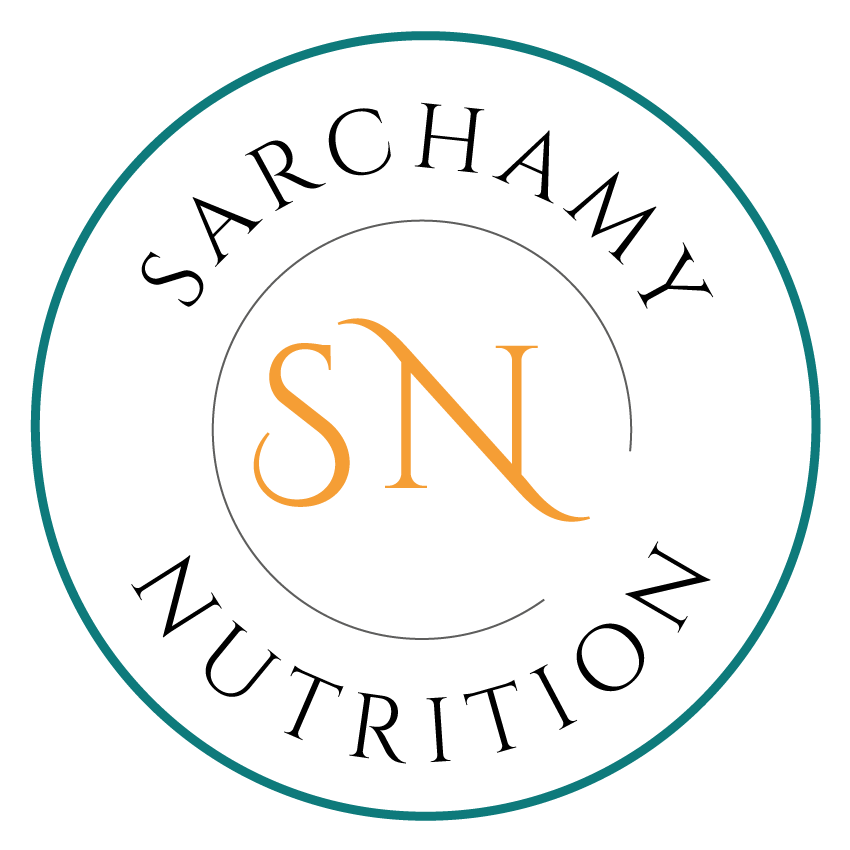Nutrition and Immunity
- Sarchamy Nutrition

- Jul 20, 2020
- 4 min read
Updated: Aug 26, 2020
With COVID-19 changing life as we know it, more and more of us are asking what we can do to support our immune system. There is a growing body of knowledge demonstrating significant correlations between macronutrients, micronutrients and the gut, in mediating immunity. Here I’ll discuss some of the many ways in which nutrition has an impact on our immune system and what we can do to support it. Immunity There are two types of immunity; Innate immunity, which is our first line of defense against pathogens that try to enter our body and adaptive or acquired immunity, which learns to recognise a pathogen and is regulated by cells and organs in the body.
For cells of the human body to function optimally, adequate nutrition is required. Adequate nutrition supports immune cell function, allowing both correct initiation of an immune response as well as efficient turning ‘off’ of the immune response, avoiding underlying chronic inflammation. These processes require nutrients, when exogenous sources of these nutrients are scares i.e. poor diet, the demand for nutrients is redirected to endogenous sources stored in the body. If bodily stores are relied on too often, stores are depleted, compromising the immune system and the individual. Spotlight on nutrients
Vitamin A and zinc regulate cell division and are essential for successful proliferation, even mild deficiency in zinc has been associated with widespread defects in both the adaptive and innate immune response.
In older adults whom are commonly deficient in vitamin E, intakes of between 400 and 800 IU have been shown to significantly reduce infections.
Studies have also demonstrated that increased blood levels of selenium are associated with an enhanced immune response. Deficiencies in which have been shown to hamper immune cell function and may lead to a slower immune response.
Vitamin D receptors (VDRs) are expressed in almost all immune cells, vitamin D therefore has immunomodulating properties and deficiencies in vitamin D have been associated with a compromised immune system.
Iron is necessary for immune cell proliferation and maturation, deficiencies in iron are linked to a higher susceptibility to illness and infection.
Omega 3 fatty acids exert major alterations on the activation of cells from both the innate and the adaptive immune system
Polyphenols initiate the immune response, such that diets low in polyphenols (plant based foods) are often linked to reduced immune efficiency.
The Gut The majority of immune cells within the human body are found within the gut-associated lymphoid tissue (GALT), in the gut. Specialised immune regions within the GALT, known as Peyer’s patches, are rich in immune cells and allow for communication between immune cells within the GALT and for communication to the wider systemic immune system. Within the gut lumen, the microbiome (gut bacteria) can provide antigens and signals that are able to interact with immune cells. Nutrients can directly or indirectly impact immune cells, causing changes in their function or cause changes in the gut microbiome. Because of this gut health is hugely important when it comes to immunity. What to Eat? Certain nutrients are needed to support our body’s immune system and promote a healthy microbiome. Today’s Western diet tends to provide an overabundance of calories and macronutrients but lack a variety of micronutrients. As a result, this can lead to increased inflammation, reduced control of infection and increased risk of allergic and auto-inflammatory disease. By contrast, the Mediterranean diet, which is the most widely described and evaluated diet in scientific literature, has been seen to have profound effects on immune status.
The Mediterranean diet is characterised by high intakes of vegetables, legumes, fruits, nuts, grains, fish, seafood, extra virgin olive oil, and a moderate intake of red wine. Its beneficial effects are widely down to the nutritional density associated with this way of eating, which includes many of the discussed nutrients above, and is therefore beneficial to those wanting to support their immune system.
Because of the strong link between the gut and the immune system, it’s also important to priorities gut health. This can be done by consuming pre and probiotics. Consuming prebiotics can improve immune function by increasing the population of protective microorganisms within the gut.
Prebiotics: Are non-digestible food ingredient that promotes the growth of beneficial microorganisms in the intestines. Such as leeks, bananas and oats
Probiotics: Are live bacteria and yeast found in certain foods or supplements. Found in fermented foods such as live yoghurt, kefir and sauerkraut
Vitamin D status should also be checked, certainly in the UK were many people fall below recommended levels. To overcome this, taking a D3 supplement during the darker, winter months (October to March) may be beneficial. Supplementation of other vitamins and minerals can also be beneficial but requires a more personalised approach.
In Summary Epidemiological studies have shown that those who are poorly nourished are at greater risk of bacterial, viral, and other infections. In order to support immune function, a varied diet rich in nutrients is essential, such as that of the Mediterranean diet. Factors such as stress, sleep, lack of exercise and alcohol consumption can also have a negative impact on our immune function.
Foods to consume
fatty fish
lean protein
colourful fruits and vegetables
legumes and beans
nuts and seed
fermented foods
Foods to limit
processed foods
refined grains
red meat (more than 1x week)
processed meats
excess sugar
excessive alcohol consumption
Understanding the role of diet and nutrition in immune function can facilitate the use of bespoke nutrition to improve human health. For more individualised advice and testing, please get in touch, email: shaz@sarchamynutrition or call: 07980 858783






Comments